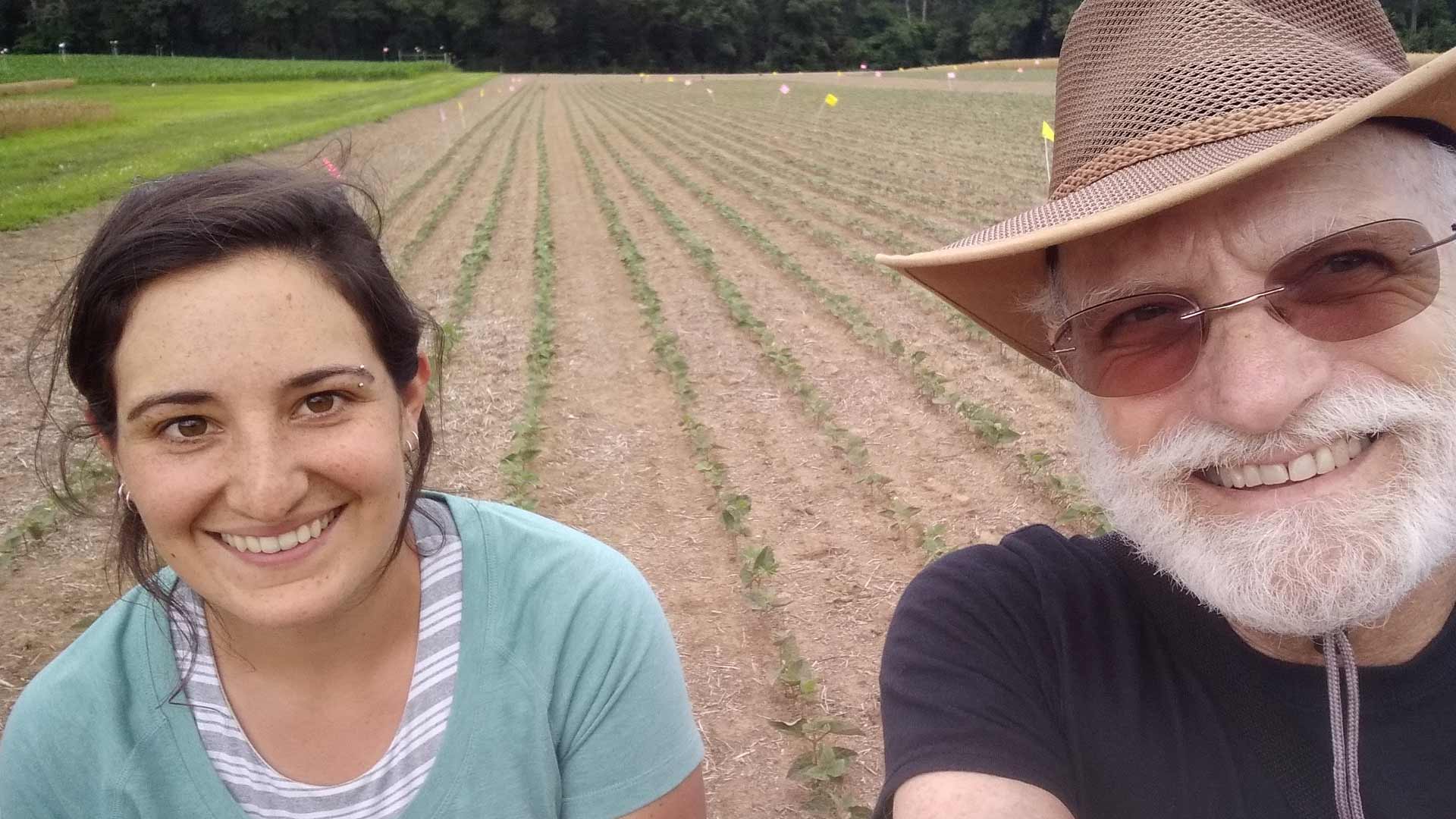- November 13, 2019
- By Chris Carroll
Usually, the end of an experiment leaves a scientist with reams of data and other less useful stuff, from metal shavings to test tubes of expired protozoa.
But Dana Rushovich M.S. ’20 knew that the conclusion of soil tests for her master’s degree research in environmental science and technology meant she’d have a pile of perfectly good food—as it turned out, 400 pounds of black beans.
Now, in the first known partnership of its kind, Dining Services has served the food grown in a student-led project in dining halls, and is extending the effort at today’s campus Farmers Market.
 While Dining Services has other partnerships to showcase meat and produce grown at the College of Agriculture and Natural Resources’ Agricultural Experiment Station and at the Terp Farm in Upper Marlboro, Rushovich grew the crop on a half-acre plot at the Central Maryland Research and Education Facility in Beltsville. Her goal was to see if adding sulfur to the soil could create larger yields and beans with better-quality protein.
While Dining Services has other partnerships to showcase meat and produce grown at the College of Agriculture and Natural Resources’ Agricultural Experiment Station and at the Terp Farm in Upper Marlboro, Rushovich grew the crop on a half-acre plot at the Central Maryland Research and Education Facility in Beltsville. Her goal was to see if adding sulfur to the soil could create larger yields and beans with better-quality protein.
“I didn’t want it to just get left behind and go to waste, so I called Dining Services,” she said.
Campus dining halls cooked up one-fourth of the haul last week at the “Field to Campus” special dinner, which also featured lamb from a project at the Western Maryland Research and Education Center and beef from the Wye Research and Education Center.
The remaining beans will be distributed through several different channels. Some will be used in a chef’s table demonstration of black bean and freekeh chili today at the Maryland Farmers’ Marketat in Tawes Plaza. People who spin the trivia wheel at the Market will receive a bag of fresh black beans. The rest of the one-pound bags will be donated to the Campus Pantry.
Rushovich’s adviser is Ray Weil, a professor of environmental science and technology, whose research in Africa showed him firsthand the effects of poor nutrition that can result from heavy dependence on beans grown in sulfur-poor soils. Although he started the research to improve the lives of hundreds of millions of people on that continent, U.S. soil sulfur is falling as well, a side effect of falling pollution thanks to the federal Clean Air Act.
“I hope the students enjoyed their high-quality protein black beans,” Weil said. “I’m still trying to get sulfur the respect it deserves.”
